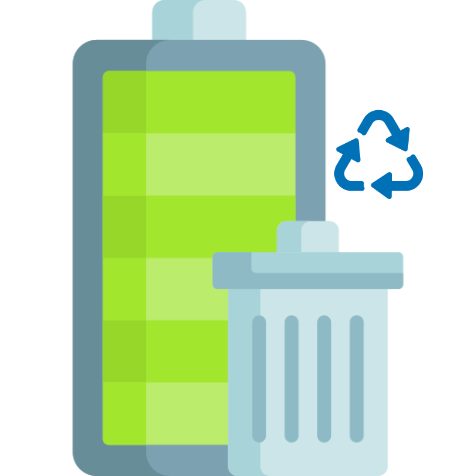Hazardous Waste Authorization
The ever-rising generation of hazardous waste has become a pressing issue for India. Unlike general waste, hazardous waste is more deteriorating in nature and could lead to severe environmental and health damage. To cater to this widespread concern, GOI, in association with various agencies, including the pollution board, came up with the Hazardous Wastes (Management, Handling, and Transboundary Movement) Rules, 2008.
The legislation seeks to foster a cohesive environment comprasing the waste generator and recycler to ensure better waste management. It also holds producers accountable for waste generation and its provisioning through a tangible approach.
What exactly does Hazardous Waste mean?
- Matches the waste cited in column (3) of Schedule I,
- Adhere to constituents cited in Schedule –II, if their concentration is equivalent to the notified threshold cited under the said schedule and
- Available under Parts A & B of Schedule-III w.r.t cross-border trading of such waste norms 12, 13, and 14 or the wastes other than in Part A and B if they match the potentially hazardous traits in Part C of that schedule;
Checklist for Securing Hazardous Waste Authorization from Concerned Authority
Every entity intending to reprocess or recycle hazardous waste must share the following documents with the authority concerned.
Consent to Establish (CTE)
Consent to Establish (CTE) is granted by the State Pollution Control Board (SPCB). This authorization falls under the following legislation:
Proof concerning the Certificate of registration
Granted by the DIC (District Industries Centre) or any capable agency;
Proof concerned installed capacity of plants & available equipmentAccorded by the DIC or any other capable authority in this regard;
Note: Those seeking renewal of authorization must submit the following dossiers:
- Certificate of compliance of effluent,
- Disposal of waste,
- Emission standards and treatment secured from the SPCB
Paperwork required for Hazardous Waste Authorization
In addition to the documents mentioned above, the applicant must arrange the following paperwork:
If the applicant entity is a Private Limited Company or a Public Limited Company
- Identity and address testament relating to the directors such as PAN and Aadhaar;
- Proof concerning ownership or renting or the leasing agreement of the facility;
- NOC (No-Objection) certificate issued and attested by the site owner;
- Any utility bill;
- MCD License;
- Memorandum of Association of the company;
- Waste Collection Agreement;
- PAN card of the company;
- Board Declaration for Authorized Signatory.
- Certificate of Incorporation (CIN)
If the applicant entity is a Proprietorship or a Partnership Firm
- PAN Card and Aadhaar card relating to the Proprietor/Partners;
- Rent/Lease/Ownership concerning the office location;
- Electricity Bill Water Bill or Telephone Bill;
- MCD License;
- Waste Collection Agreement;
How to secure the Hazardous Waste Authorization?
Any applicant intending to secure the hazardous waste authorization for reprocessing or recycling of notified waste must abide by the following procedure:
Step 1: Application Filing
Head to the concerned pollution authority portal and get access to Form 5. Fill out this application form with legitimate details and upload the relevant paperwork as mentioned in the preceding section. Be aware of the file format before uploading the dossiers.
Step 2: Paperwork and Premises Inspection
Once the concerned pollution board receives the dossier, they will begin the vetting process. All the paperwork shall be thoroughly inspected for accuracy and compliance. Furthermore, the authority will undergo premises inspection to determine whether the facility is compliant or not. While doing so, they will take the following parameters into account:
- Environmentally sound technologies;
- Technical capabilities;
- Requisite facilities;
- Relevant equipment.
Step 3: Grant of Certification
Post successful vetting process, the certificate i.e. Hazardous Waste Authorization shall be granted, enabling the applicant to reprocess or recycle the notified waste as per the rules
Note: The authority is bound to process the duly filled application and paperwork within 120 days of receiving the same. Technically, it is an overall timeline for the registration processing. No application shall be processed beyond this timeline regardless of whether it is approved or not.
What are the common grounds for license cancellation?
The CPCB can revoke or suspend the registration if they have reasons to believe that some non-conformity has come to light. The apex authority generally revokes the registration on the following grounds:
- The licensee has failed to abide by the norms of the underlying rules;
- The facility has failed to ensure effective waste management
- The premise lacks adequate resources for waste handling and control.
- The licensee has breached certain conditions of the registration.
If my application for hazardous waste authorization gets canceled?
In such cases, the applicant will get a fair chance to revive their application by presenting their case before the authority. Make sure to make the most out of this chance by overcoming non-compliance flagged by the authority.
Post Licensing Obligations for the Licensee
Type Approval reflects that the product has been certified for safety and performance when exposed to underlying tests. Let’s say the product is a Vehicle tracking device. In such a case, the certificate can reflect the following details:
- The authorization holder must maintain documented resources concerning hazardous waste procurement and processing.
- They are also liable to file annual returns via form 6 in an interval advised by the respective State Pollution Control Board.
- All the personnel working within the premises must have access to safety kits, including gloves and helmets to minimize exposure to the waste.
- The document concerning waste channelization should be duly maintained without fail. There should be a tangible record of waste procurement and channelization.
- The certified recycler must abide by the CPCB’s norms for recycling notified wastes.
- The channelization of notified waste cited in Schedule- IV should be made toward the certified recycler or those holding approval from CPCB. These directions may undergo changes made by the authority.
- Those seeking the leverage such wastes for energy recovery or any other purpose must have approval from the Central Pollution Control Board.
How long does Hazardous waste Authorization stay valid?
Technically, the Hazardous waste Authorization stays valid for 5 years in the purview of the sub-rule (2). The validation timeline shall become effective from the issuance date. The valid shall remain unaffected even in the case the unit permanently halts its operation or its license undergoes suspension for any reason.
Why Adviso?
Say Goodbye to Endless Regulations and Norms.Navigating through the hassles of compliance for any government license is not a pleasant experience for any entrepreneur. From complicated paperwork to endless requirements, one needs to cater to every aspect before applying for any approval. Unlike most government licensing, approval like Hazardous Waste Authorization is not easy to secure owing to rigorous inspection and stringent norms.
That’s where you need professional assistance from a trusted agency like Adviso
- Adviso is a new-age licensing firm that believes in delivering nothing except the best.
- are well-versed in different licensing schemes and government approvals, making us a standout option among our peers.
- We can ensure seamless and prompt grant of licenses, which otherwise take loads of time owing to endless conditions.
- We foster a team of professionals who are keen to deliver top-tier services and garner long-term relationships with clients.
FAQs
A1: Hazardous waste, as per the Act, includes any waste possessing toxic, explosive, corrosive, chemical, reactive, or flammable characteristics that pose a risk to human health or the environment. It covers underlying criteria cited in Schedules I, II, and III of the regulations.




.png)






